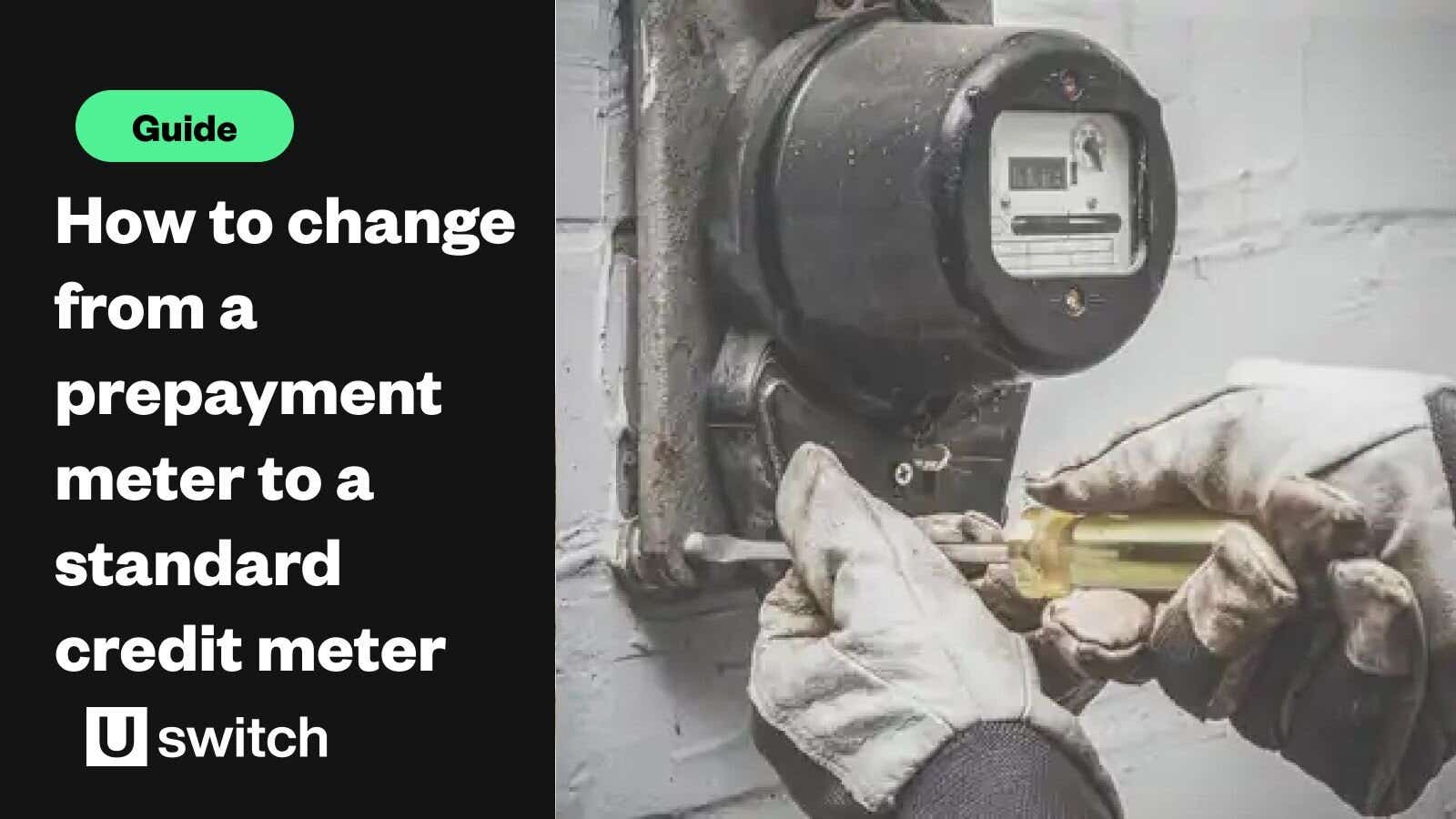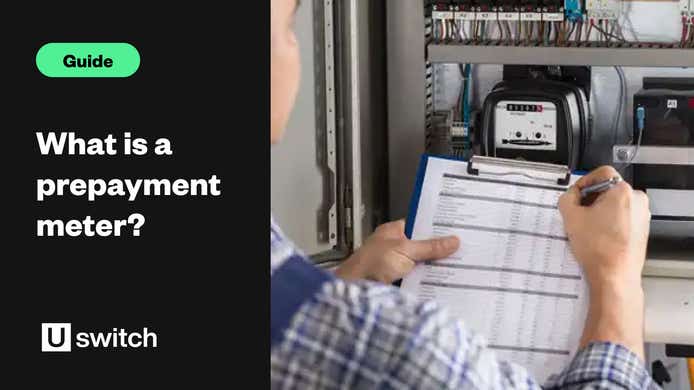Key takeaways
- If you're on a prepayment meter, you should be able to switch to a credit meter as long as you're not in debt.
- You may also be subject to a credit check.
- If you can't switch to a credit meter, you may still be able to save by switching to a cheaper prepayment plan.
What is a prepayment meter?
A prepayment meter is a type of gas or electricity meter that requires you to pre-pay for your energy before you use it. You’ll know if you have a prepayment meter if you have to top up a smart card, key or app to pay for your gas or electricity.
There are around four million prepayment energy meters in the UK. Prepayment meters are usually installed in homes that have fallen into debt with their supplier, and are also common in rental properties.
What is a credit meter?
A credit meter is a more common type of meter that allows households to pay a set amount a month for their energy usage. These are also known as direct debit meters, as that’s the most common way to pay for these energy tariffs. With a credit meter, there’s no risk of running out of credit and no need to top up.
Which is cheaper: a prepayment or credit meter?
Prepayment meter tariffs were traditionally more expensive than standard credit meters. Because this disproportionally affected those on lower incomes, it led to accusations of a "prepayment premium". As part of the February 2024 price cap announcement, the government is applying a discount on prepayment standing charges, which means that prepayment will be slightly cheaper than standard credit. This could be the case for months if not years.
However, those on standard credit meters will likely have more choice in terms of deals to switch to than those on prepayment meters.
Can I change my prepayment meter to a standard meter?
You should be able to change your prepayment meter to a standard meter as long as you're not in debt to your current supplier. If you are eligible, you may need to pay for it.
Case study: "Uswitch sorted my energy and helped me with my slightly complicated situation of moving house from a credit to a pre-payment meter (which I didn't understand at all!) and gave me very helpful advice for the best way to make sure I could get the cheapest deals and switch over to a credit meter. I would thoroughly recommend."
- Sophie, Uswitch customer
How much does it cost to switch from a prepayment meter to a credit meter?
None of the bigger suppliers charge to change prepayment meters over to credit meters. However, they will require that your energy account is debt-free, and some may run a credit check to ensure you're suitable for a direct debit plan. Contact your supplier to get the ball rolling.
Why do energy companies run a credit check?
An energy plan on a standard meter is like having a lending agreement. The energy company will agree to supply energy to your household provided that you can keep up with monthly or quarterly repayments via direct debit. Prepayment meters are a safety net for suppliers, as customers have to top up their meter to continue receiving energy to their homes.
What can I do if I can't change my prepayment meter?
If you don't meet the criteria for a credit meter, there are still measures you can take. You may still be able to find a cheaper deal than your current one with a different supplier by comparing prepayment energy plans with Uswitch.
Some prepayment plans offer other features besides price — for example, some suppliers provide more convenient ways for topping up, such as via your smartphone.
Prepayment meters are being phased out by the smart meter initiative, which aims to offer a smart meter to every home by June 2025. This will make it easier to top up and understand how you consume energy throughout the day.
Learn more about smart meters here.
What do I do if my new home has a prepayment meter?
Firstly, find out who your supplier is. If your new home is already with a large supplier, then you can ask them to change the meter for free. You will still be subject to a credit check before your supplier agrees to prepayment meter removal.
How can I improve my credit score?
If you're concerned that your credit score might prevent you from being allowed to change your prepayment meter to a standard one, then you should take some steps to improve it.
Here are some quick tips to help you get your credit score up.
1. Register on the electoral roll
This is easy to do online and shouldn't take longer than five minutes. You only need to register once to be eligible to vote in every election, but you do need to register again every time you change your address, name or nationality.
So what does this have to do with your credit score? Energy companies, banks, and other lenders will almost always reject customers not registered to vote. Having your name confirmed on the electoral register means you are tied to your current address. Those who are not officially registered to their address are considered to be more of a fraud risk.
2. Close credit accounts you no longer use
If you have a few credit cards you haven't used in a long time, be sure to close those accounts. Your credit report reveals to energy companies how much money you are borrowing. Even if you are not using your credit limit it still shows that you have the capability of running into debt.
3. Wait before applying again if you've been rejected
Credit reports show energy companies and lenders all of the recent applications you've made for credit cards, mortgages, bank accounts and even mobile phone contracts. If you've been rejected recently, then you should wait a few months before applying again. Being rejected multiple times in close succession lowers your credit score as it is considered to be a sign of being in a desperate situation.
4. Take out a low-limit credit card
It may seem counterintuitive to apply for credit when you want to improve your credit score, but there are credit cards designed for people who want to build their score up. These credit-building credit cards have low spending limits and high rates of interest to encourage customers to use them sparingly and pay them back in full and on time every month. Doing this regularly proves to energy companies that you can be trusted to pay bills on time. You can compare credit-building credit cards with Uswitch.
Once I've switched from a prepayment meter to a credit meter, can I switch energy?
Yes, there shouldn't be anything stopping you from switching your energy once you've got a credit meter. Get started by entering your postcode below.

Run an energy comparison
Click here to compare energy prices and get started on your energy switch.




